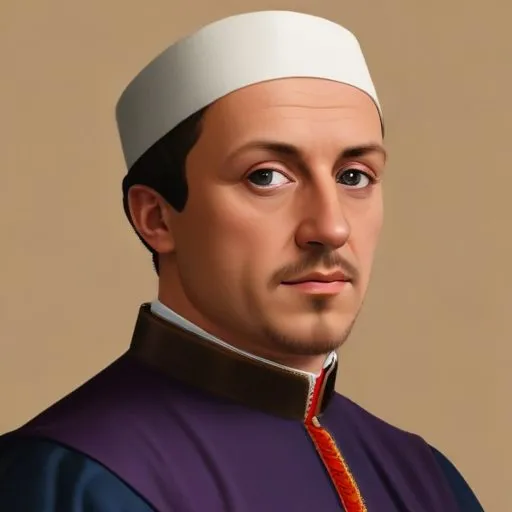
The Duke of Milan, a powerful Renaissance leader, expanded his dominion through strategic marriages and military campaigns, fostering a cultural and artistic boom in 15th-century Italy.
Born on July 23, 1401, in Cigoli, near San Miniato, Tuscany, Francesco was one of seven illegitimate sons of the condottiero Muzio Sforza and Lucia de Martini. His childhood was spent in Tricarico, in the modern Basilicata, where he was granted the marquisate by King Ladislaus of Naples in 1412. In 1418, he married Polissena Ruffo, a Calabrese noblewoman.
One of his most significant achievements was instrumental in the Treaty of Lodi in 1454, which ensured peace in the Italian realms for a time by maintaining a strategic balance of power. This treaty showcased his diplomatic skills and ability to bring warring factions together.
Francesco's legacy extends beyond his military campaigns and diplomatic achievements. He founded the Sforza dynasty, which would go on to shape the course of Milanese history for centuries to come. His descendants would play a significant role in the Italian Renaissance, patronizing some of the most prominent artists and thinkers of the time.
Despite his impressive stature, Francesco was also a skilled tactician and field commander, earning the respect of his peers and the admiration of his enemies. His life serves as a testament to the complexities of human nature, where brute strength and intellectual prowess coexist in perfect harmony.
Despite the complexities of this tumultuous era, Francesco managed to carve out a niche for himself and his dynasty, leaving an indelible mark on the history of Milan and Italy as a whole. His legacy serves as a reminder of the importance of strategic alliances, military prowess, and clever diplomacy in the pursuit of power and stability.

Born in 1444
The ruler of Milan from 1466 to 1476, known for his cruel and tyrannical reign, marked by numerous assassinations and brutal suppression of opposition. He was also a patron of the arts, commissioning works from famous artists like Leonardo da Vinci.
Born in 1452
Ruler of Milan who commissioned Leonardo da Vinci's famous painting, The Last Supper, and was a patron of the arts and architecture.
Born in 1389
Ruler of Florence who brought stability and prosperity to the city, patronizing artists and humanists, and establishing the Medici dynasty. He was a shrewd politician and banker who laid the groundwork for the Renaissance.
Born in 1351
Ruler of Milan who unified the city-states of northern Italy and established a powerful dynasty, known for his military conquests and cultural achievements.